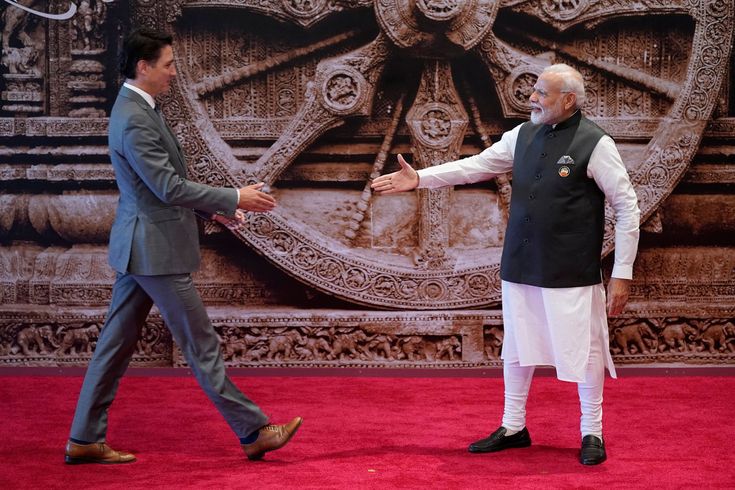India has openly expressed its concerns about the state of its relationship with Canada, describing it as passing through a difficult phase. This statement comes in the wake of what India perceives as “continued interference” by Canadian officials in its internal affairs.
The crux of the issue revolves around Canadian Prime Minister Justin Trudeau’s suggestion last month that Indian agents may have played a role in the murder of a Sikh separatist leader in British Columbia in June. India has categorically denied any involvement in this incident, which has sparked a growing diplomatic rift.
Indian External Affairs Minister Dr. S. Jaishankar, addressing the situation, stated, “The relationship right now is going through a difficult phase. But I do want to say the problems we have are with a certain segment of Canadian politics and the policies that flow from that.” These remarks underline India’s concern with specific aspects of Canadian politics and their resultant policies.
Tensions escalated when Canada was forced to withdraw 41 of its diplomats from India after New Delhi unilaterally revoked its official diplomatic status. Trudeau responded to this move, stating that the Indian government’s actions were causing hardships for millions of people in both countries, affecting the normal course of life.
In response to these actions, Jaishankar clarified that India had invoked diplomatic parity under the Vienna Convention due to its concerns regarding continuous interference by Canadian personnel in India’s internal affairs. He mentioned, “We haven’t made much of that public. My sense is over a period of time more stuff will come out, and people will understand why we had the kind of discomfort with many of them which we did.”
Canada’s Foreign Minister Melanie Joly criticized India’s stance, deeming it unreasonable and unprecedented and alleging a violation of the Vienna Convention on diplomatic relations. The situation remains tense as both nations defend their positions.
In a related move, India disclosed that it had halted the issuance of visas in Canada a few weeks ago. The reason behind this decision, according to Jaishankar, was concerns over the safety and security of Indian diplomats working in Canada. He also emphasized that India would consider resuming the issuance of visas when it saw tangible progress in ensuring the safety of its diplomats.
The complex India-Canada relationship is characterized by cultural ties and a substantial Indian diaspora in Canada. Approximately two million Canadians, constituting 5% of the population, have Indian heritage. Furthermore, India is the largest source of overseas students in Canada, with Indian students accounting for approximately 40% of all study permit holders.
As this diplomatic disagreement unfolds, the world watches to see if both nations can find common ground to repair their strained relationship. The path to resolution remains uncertain, and it is hoped that constructive dialogue and diplomacy will ultimately prevail to mend the rift between these two important nations.


